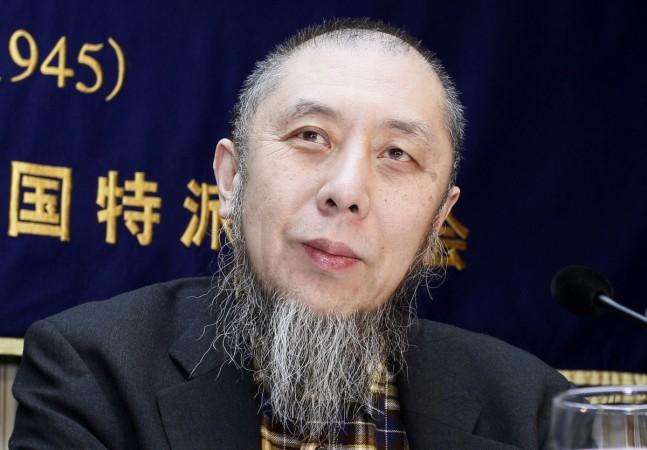
Japan had sought the help of a radical Muslim scholar suspected of being a recruiter for the Islamic State to build a communication channel with the terror group during the peak of the hostage crisis involving Japanese journalist Kenji Goto and Haruna Yukawa, but later sidestepped it.
Islamic law professor Hassan Ko Nakata was asked by the Japanese government to deliver a message to ISIS last month during the hostage crisis, when the group had threatened to kill Goto and Yukawa unless Japan paid a ransom of $200 million, Reuters reported.
It was earlier believed that Japan had been unable to open any channel of communication with the Islamic State and had relied on its ally Jordan to communicate with the group.
Nakata's Channel of Communication with ISIS
Nakata had reportedly travelled to Syria in September last year in a bid to free Yukawa, but did not succeed and returned to Japan.
Last month, he claims to have been asked to open a channel of communication with the terror group by Japan's foreign ministry, and said that he was in touch with Umar Ghuraba, a Chechen fighter in the Islamic State.
On 21 January, a day after ISIS had released a video threatening to kill the two men, Japan's anti-terrorism taskforce sent an email to Nakata via an associate, asking him to pass on a request to the group with a message that read as - "We strongly urge the group not to harm the two Japanese nationals and to release them immediately."
However, Nakata refused to forward the message, which did not mention the ransom demand, citing concerns that the group would kill the hostages.
"If I passed this on, it would be like sending a message to kill the hostages," he told Reuters.
While the government did not get back to Nakata over the message, two days later, the scholar received a chilling WhatsApp message from Umar himself – "There isn't much time left. The Islamic State will carry out its promise".
The two also discussed the veracity of an audio recording purporting to carry a message from a Japanese diplomat based in Jordan assuring that Japan was "serious" in its efforts to save the hostages.
However, when the first deadline had passed, the Islamic State had released a video purporting to show the beheading of Yukawa.
Japan-Jordan-ISIS Deadlock
Even though Japan briefly used 54-year-old Nakata as an intermediary, it soon closed the channel to rely exclusively on Jordan which was attempting to free its pilot Muath al-Kaseasbeh, who was thought to be alive at the time of the crisis.
However, Kaseasbeh was reportedly executed weeks after his capture in December, after ISIS militants allegedly downed his coalition plane.
Jordan had established contact with the Islamic State through local tribal groups in the region, and had even agreed to swap its prisoner Sajida al-Rishawi in exchange for Goto and Kaseasbeh.
The fact that Jordan did not receive any proof from ISIS that Kaseasbeh was alive led to a deadlock in the hostage crisis, that ultimately led to the execution of Goto.
Japan's decision to work with Jordan also effectively led to the closure of a channel between ISIS and Goto's wife, Rinko, who had received an email from the group.
Criticism
The Japanese government has now come under criticism over its decision to ignore private channels of communication with the group and to rely solely on Jordan.
"The government sidelined whatever private communication channels there were in place and proved unable to establish effective contact with the militants until the very end," Nils Bildt, president of security consultancy CTSS Japan, told Reuters.
Nakata himself expressed dismay at the episode.
"I just wanted to use my connections with the Islamic State to help solve the crisis," said Nakata an Islamic law professor who had earlier pledged support to the Islamic State but now claims to have withdrawn it.
However, Japanese authorities have defended the government.
"The Japanese government took all possible measures and considered all options to deal with the hostage crisis but I would like to refrain from commenting on specific steps undertaken by the government," taskforce official Takanori Hayashi said.

















